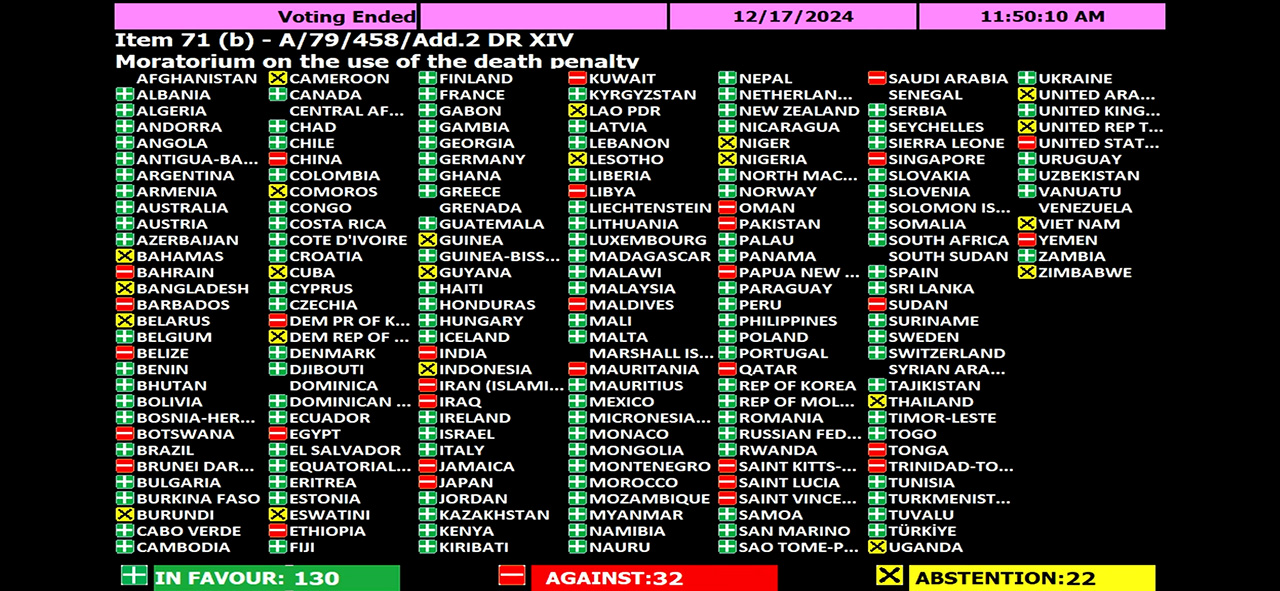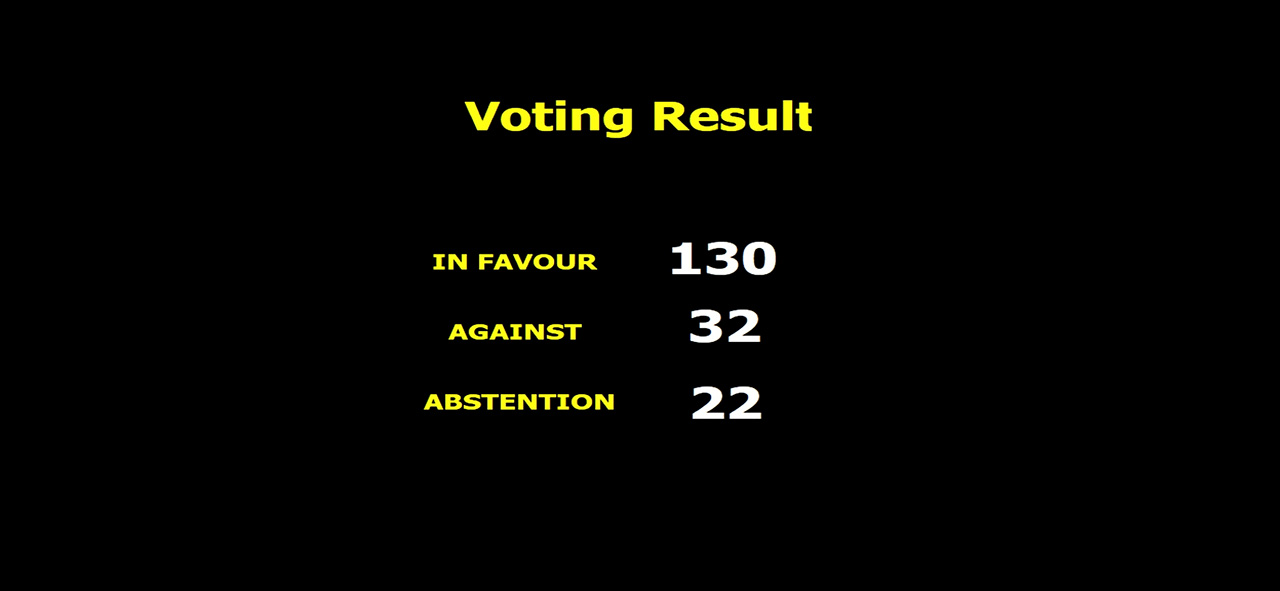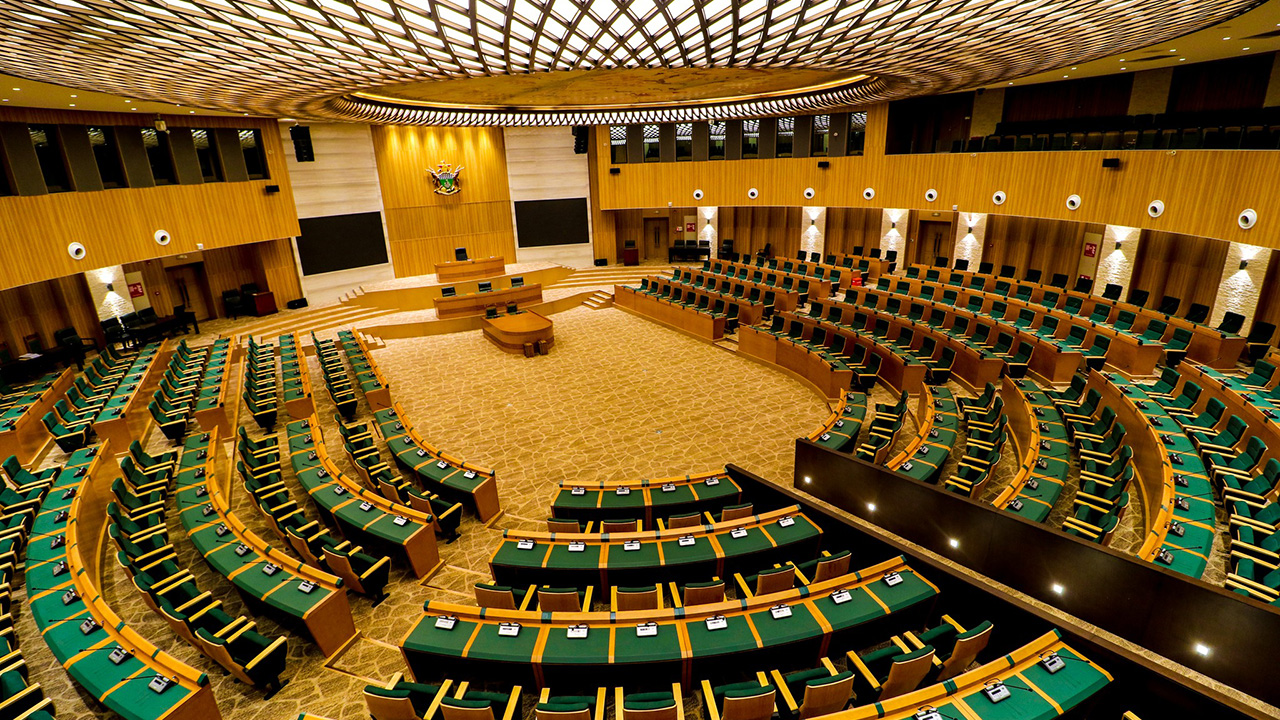

On 17 December, during the 79th session of the United Nations General Assembly (UNGA), Member States overwhelmingly adopted the tenth Resolution on a “Moratorium on the use of the death penalty”. With 130 votes in favor, 22 abstentions and 32 votes against, this historic result represents a crucial step forward for the abolitionist movement. Compared to the 2022 resolution, which received 125 votes in favor, the significant support for this year’s resolution reflects the increasing international momentum for the implementation of a universal moratorium, as a first step towards ending the use of capital punishment.
This resolution, co-facilitated by Argentina and Italy on behalf of the Inter-Regional Task Force, was co-sponsored by 70 States. It calls upon all States to establish a moratorium on executions, with a view to abolishing the death penalty.
Today, two-thirds of the world’s countries have expressed their support for the implementation of a universal moratorium, as a decisive step towards the full abolition of the death penalty. The death penalty is incompatible with the principles of human dignity and justice. I am proud that Kenya has endorsed the resolution this year, and we will persist in our efforts – at the national level, in our respective regions, and globally – not only to implement moratoria, but to ensure the complete elimination of the death penalty from our laws. Millie Odhiambo, MP (Kenya), Convenor of PGA’s Campaign on the Abolition of the Death Penalty
In terms of positive developments observed, several States made remarkable shifts in their positions compared to 2022:
- From Against to In Favor: Antigua and Barbuda, Burundi;
- From Abstention to In Favor: Gabon, Kenya, Morocco, Zambia;
- From No Vote to In Favor: São Tomé and Príncipe, Seychelles, Somalia, Vanuatu;
- From Against to Abstention: Bahamas, Bangladesh and the Democratic Republic of the Congo.
Nevertheless, challenges remain, as some setbacks were also noticed:
- From In Favor to Abstention: Guinea, Uganda;
- From Abstention to Against: Mauritania, Papua New Guinea;
- From In Favor to Absent during the vote: Central African Republic, Marshall Islands.
PGA acknowledges the tireless work of the global abolitionist movement, and expresses its gratitude to its parliamentary members for their engagement and advocacy, which contributed to this result. Through their efforts, parliamentarians play a pivotal role in urging their governments to support this resolution, and take meaningful action towards ending capital punishment.
About the moratorium resolution
Every two-years, the UN General Assembly is expected to consider and vote on a draft resolution calling for a moratorium on the death penalty. The adoption of the moratorium resolution underscores States’ commitment to end the use of this cruel punishment. It also fosters support for abolishing the death penalty and advances national dialogues and measures towards abolition.
By explicitly linking the establishment of a moratorium to human rights, the adoption of the first resolution (62/149) on 18 December 2007, marked a critical turning point: the use of capital punishment is not just a criminal justice issue – it is a question of upholding human rights.
Since then, the UNGA has adopted ten resolutions on the moratorium, each receiving broader support. The number of votes in favor has increased from 104 in 2007, to 130 in 2024, reflecting the global abolitionist trend.
PGA opposes capital punishment in all circumstances. Parliamentarians have a crucial role to play in the movement to restrict the use of the death penalty and ultimately abolish it through drafting legislation, deliberating on national policies, and enlightening public opinion. Find out more about our Campaign on the Abolishment of the Death Penalty




